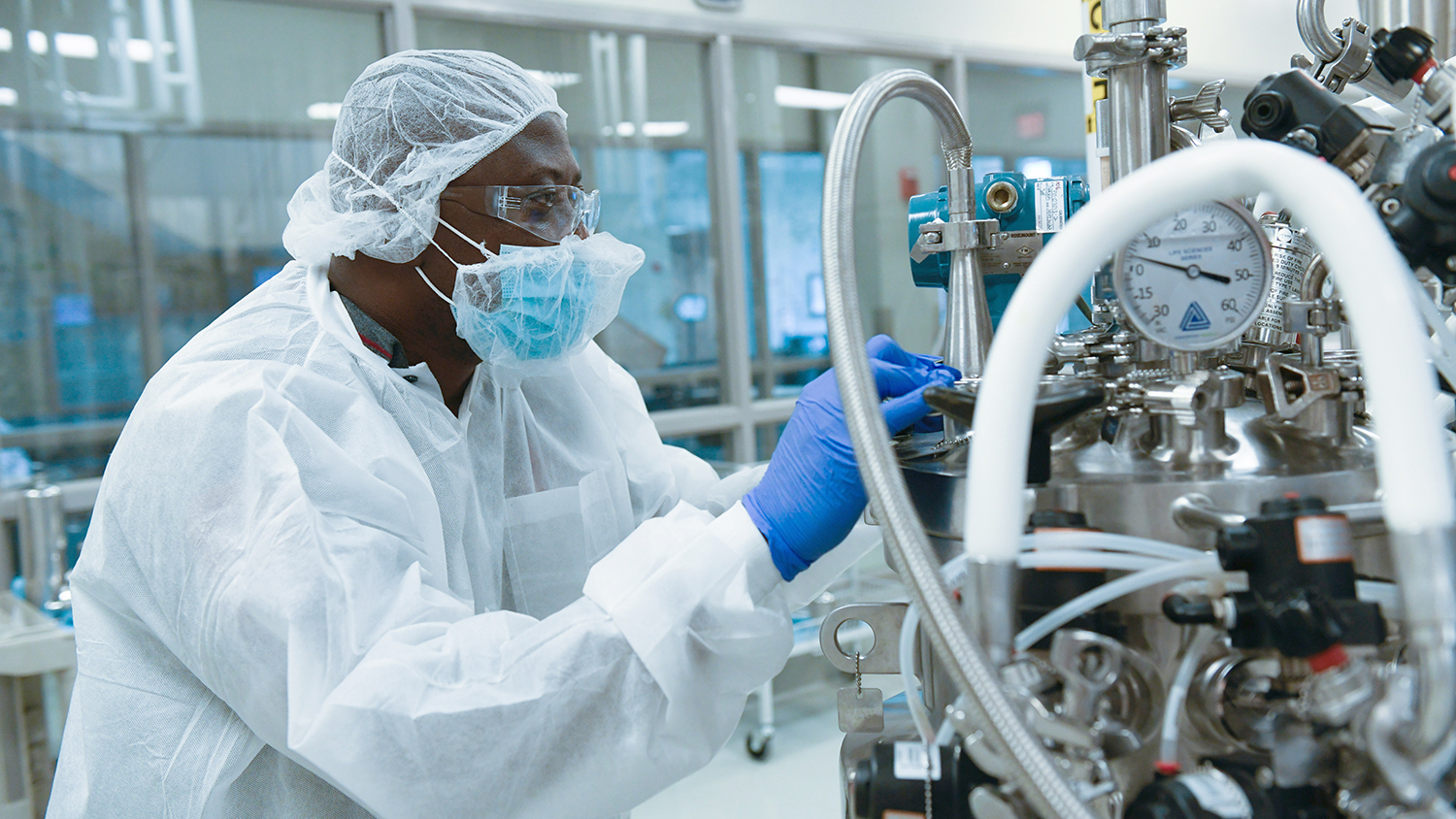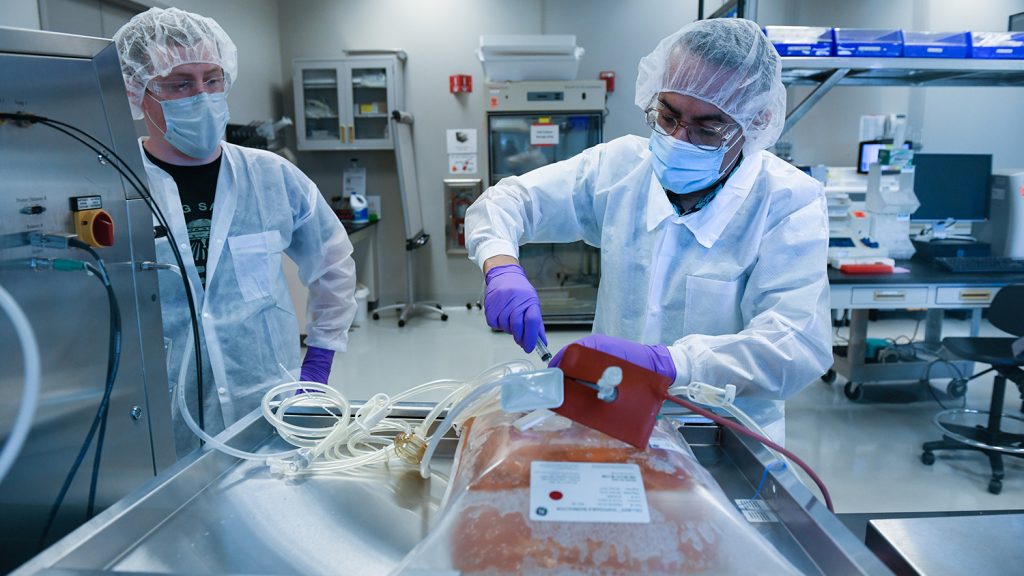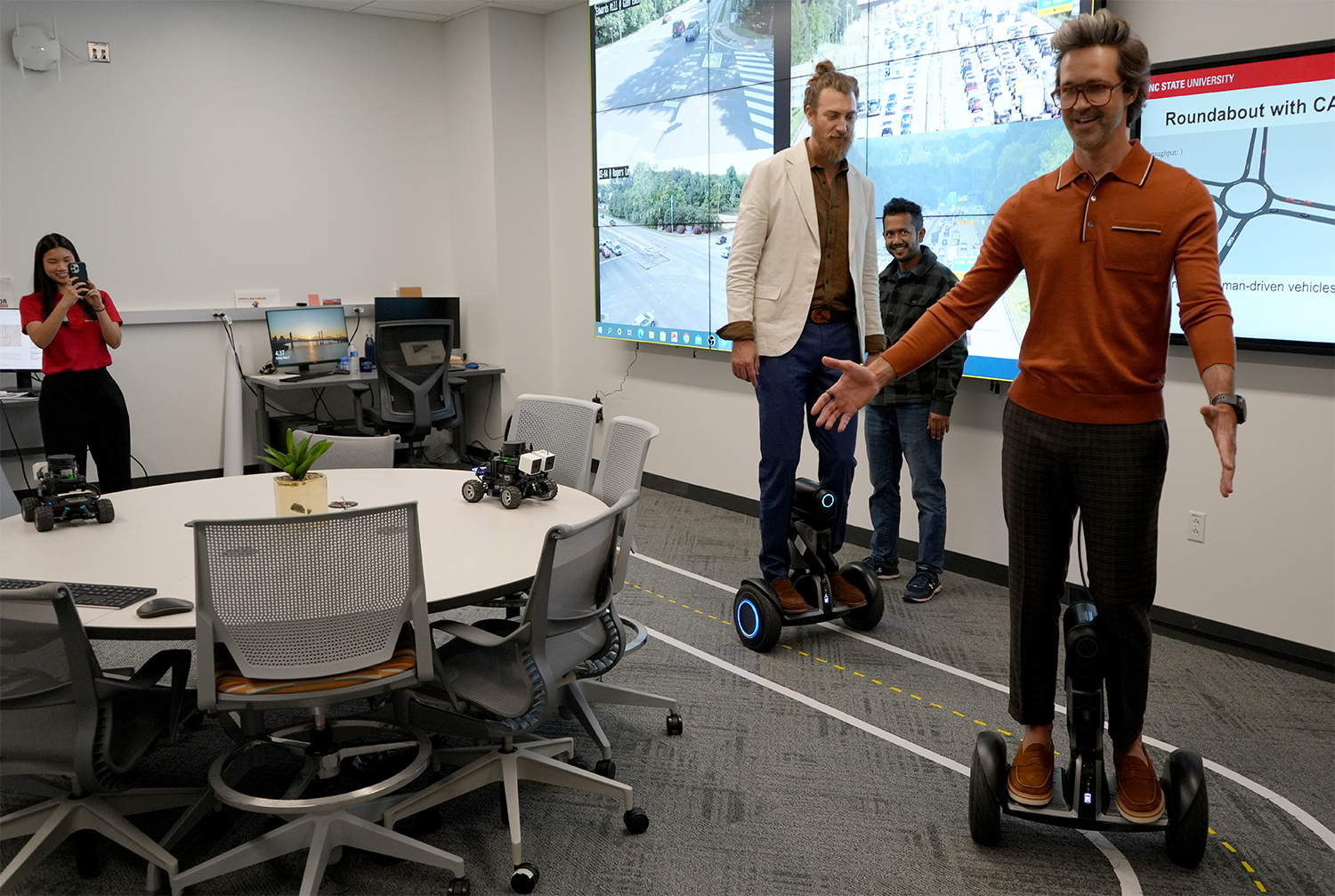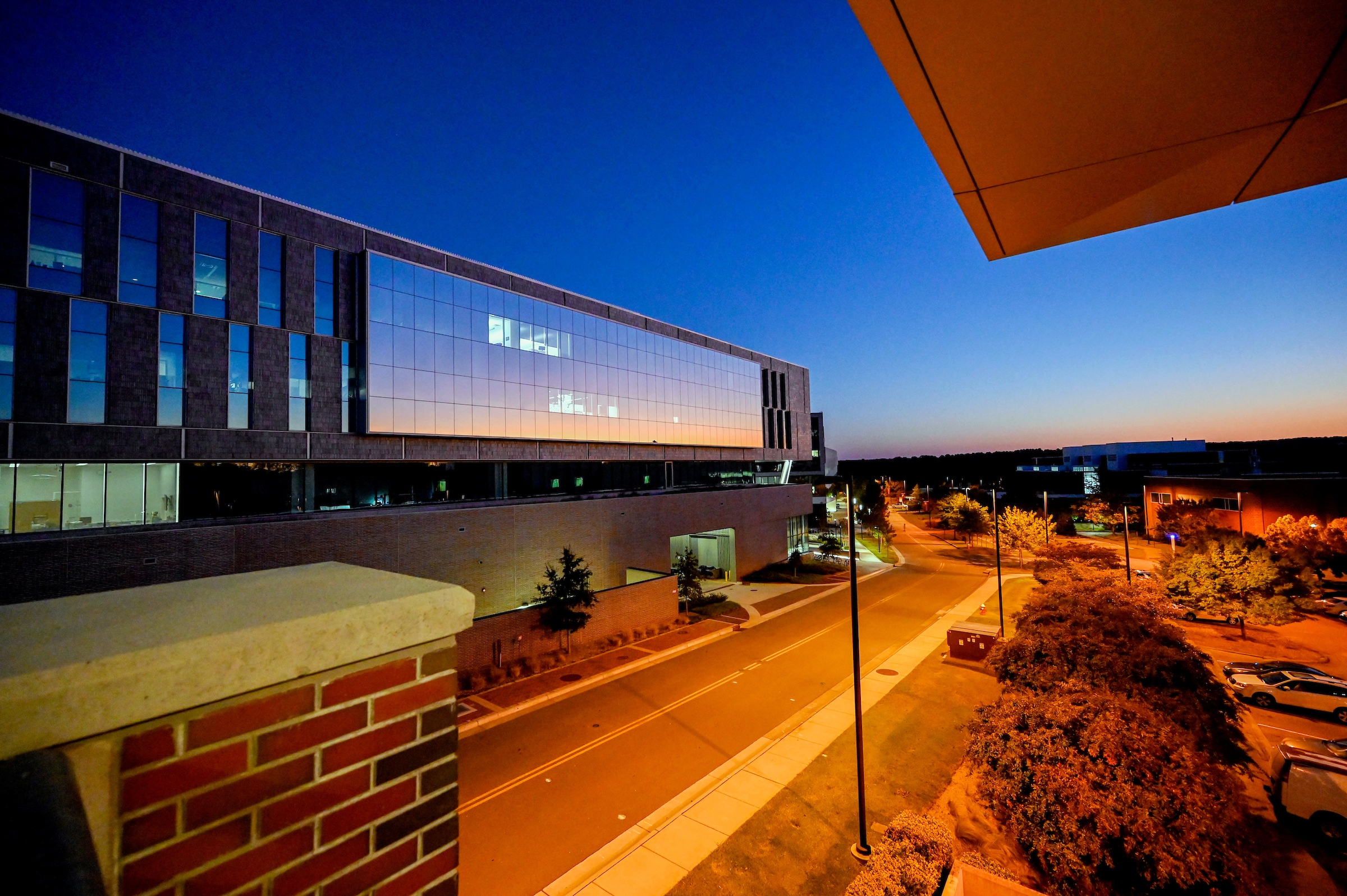Return on investment
The Golden LEAF Biomanufacturing Training and Education Center helps drive a thriving industry.

A subsidiary of Fujifilm Corporation, Fujifilm Diosynth Biotechnologies’ Holly Springs site will bring a planned 725 new highly skilled positions to North Carolina’s Research Triangle region by 2028 and represents a $2 billion investment in the state. It was a significant win for North Carolina economic developers, but is one of many notable biopharma announcements over the last couple of years.
As state leaders looked to transform the economy from one built on tobacco, textiles and furniture, they have made a significant investment in recent years in biotechnology — a broad field covering the use of living systems to make products with applications in healthcare, agriculture, food processing and more. That investment has reaped significant benefits: with more than 775 companies employing 67,000 people, North Carolina’s biotech industry has grown 25 percent since 2010, according to the North Carolina Biotechnology Center.
One of those early investments led to the creation of the Golden LEAF Biomanufacturing Training and Education Center (BTEC), part of the College of Engineering and located on NC State’s Centennial Campus. BTEC offers NC State students undergraduate and graduate minors and a master’s degree in biomanufacturing, focused specifically on biopharmaceutical manufacturing. BTEC also offers specialized training for working professionals and analytical and bioprocess services to companies, all in a state-of-the-art facility. Access to those services, and the well-qualified NC State graduates who often stay in the area after finishing their studies, is a major selling point for biopharmaceutical companies that have North Carolina on their short list of places to invest.
“BTEC is one of the reasons that these companies are coming here, because of the NC State students that have gone through our programs,” said Gary Gilleskie, the center’s director. “They know that we are going to provide talent: trained and educated students.”
BTEC is one of many parts of the College of Engineering that plays a key role in recruiting businesses to North Carolina and helping them once they are here. Thomas White, director of the University’s Economic Development Partnership, often calls on faculty and staff members within the College for data on students and graduates and to provide information on research and expertise that might be relevant to a potential company. White said that Industry Expansion Solutions, the COE extension arm, and the NC Clean Energy Technology Center, also part of the College, are important assets as well.
“The College of Engineering, the brand that we have, I wouldn’t trade it for anything,” White said.

A changed economy
The Golden LEAF Foundation was established in 1999 to help create new economic opportunities using the state’s proceeds from the 1998 Master Settlement Agreement with cigarette manufacturers. Investments of millions of dollars from the foundation in the early part of this century led to the creation not only of BTEC but also to the founding of a groundbreaking biomanufacturing training partnership called NCBioImpact. This partnership between industry, government, North Carolina’s universities and community college system, NCBIO and the NC Biotechnology Center is the foundation of the state’s flourishing biopharmaceutical industry.
BTEC’s combination of undergraduate and graduate education plus training and facilities access for existing industry was unique when the center was established in 2007, and several states have tried to copy that blueprint with similar efforts, Gilleskie said. One of BTEC’s distinct advantages is that the North Carolina legislature continues to provide millions of dollars in dedicated funding annually for operation of the center.
While North Carolina’s biopharmaceutical industry was established and growing in 2007 when BTEC was founded, the industry has really taken off in the last few years, particularly in the area of gene therapy, Gilleskie said.
Just a few months after the FUJIFILM Diosynth Biotechnologies announcement, Amgen announced that it would also be coming to Holly Springs, NC, creating a new multi-product biopharmaceutical drug substance manufacturing facility and creating 355 jobs. The NC Biotechnology Center counts 37 biopharma manufacturing economic development announcements across the state totaling 7,131 new jobs just since spring 2017.
The industry’s maturation in the state has only served to make BTEC stronger. Companies need highly skilled BTEC graduates. They also need specialized training for existing employees who have a background in biomanufacturing, but maybe not in the specific work that they have been hired to do. BTEC has the expertise to offer these short courses, which are in demand because companies nearby and throughout the United States have a need for specialized training.
The relationships that form between BTEC and the major players in the industry are also invaluable for economic development. Laura Rowley, director of life science economic development for the NC Biotechnology Center, always tries to schedule time for representatives of biomanufacturing companies considering an investment in North Carolina to see BTEC. The quality of the center’s students, the capabilities of its facilities and the breadth of its offerings, along with the staff and faculty’s obvious familiarity with and relationships with companies in the industry, make it a tremendous tool.
“It’s those multiple touchpoints that make BTEC so unique and so valuable,” she said. “It’s just something that not everyone can do and it’s something that sets BTEC and North Carolina apart.”
Staying close to home
The value for students earning an undergraduate or graduate concentration or a master’s degree from the center is also obvious. Ninety-eight percent of students who earn a biomanufacturing minor or master’s degree at BTEC are employed in the industry within six months of leaving NC State.
Young people in North Carolina can go to school and have a promising career without having to leave the state, Rowley said. And the work that they do can literally help to save lives.
“It’s hard not to feel that this is a meaningful field to be involved in,” she said.
Emily Barefoot graduated in spring 2021 from NC State with a bachelor’s degree in chemical engineering and a biomanufacturing concentration. Thanks to BTEC’s accelerated bachelor’s-to-master’s program, much of her senior-year coursework applied to her graduate studies, and she should complete her master’s in biomanufacturing in just one additional year. As an undergraduate, she was connected through BTEC with Merck for two internships and has accepted a full-time position that will start after she graduates.
Barefoot is planning for a career in industry and is glad that there will be many opportunities for her to stay in the area. No matter what kind of work her employer is doing, Barefoot thinks that her NC State training will have her prepared.
“I can go into that role feeling confident,” Barefoot said. “I might not know everything the first day that I walk in the door, but that foundation is really important.”
North Carolina by the numbers
- The state’s life sciences industry includes more than 775 companies employing over 67,000 people, according to the North Carolina Biotechnology Center
- #3 in the United States in pharmaceutical and medicine manufacturing
- 15 percent growth in pharmaceutical manufacturing employment since 2010
- 1,600+ new pharmaceutical manufacturing jobs announced in 2021
- Categories:


